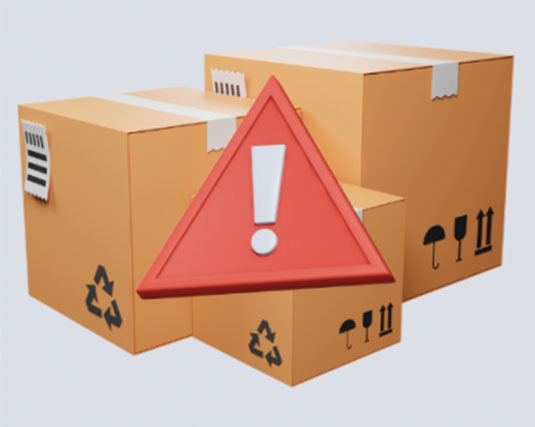Don't Get Caught in a Non-Delivery Scam

With the holidays coming up, and online shopping reaching its annual peak, scammers are out to get at your money and your stuff. There are loads of scams to watch for this time of year, from online “retailers” phishing for information as you shop to thieves swiping delivered packages from doorsteps and so many more. The non-delivery scam can be particularly difficult to spot, and recovery is nearly impossible. Here’s what you need to know about this scam.
How the scam plays out
In a non-delivery scam, a shopper makes an online purchase, often at a deep discount. Unfortunately, though, the promised package never arrives. After weeks of waiting, the shopper may try reaching out to the seller, only to find that the seller’s gone AWOL, along with the victim’s chances of recovering their money and/or their purchase.
Protect yourself
Here’s how to protect yourself against non-delivery scams:
- Never click on links or open attachments of unsolicited emails or on social media.
- Keep your device’s security at its strongest settings.
- Opt-out of websites that are full of typos and/or grammatical errors.
- Check each website’s URL for authentic spelling and signs of security, like the “https” and padlock.
- Research every new seller when shopping before sharing any information or making a purchase.
- Avoid making payments by prepaid gift cards or wire transfer. When shopping online, it’s best to use a credit card.
- Stay away from sellers who advertise as if they are residents of the U.S. and then respond to questions by claiming they are out of the country.
- Be wary of items with prices that are too good to be true–they probably are!
If you're targeted
If you believe you’ve fallen victim to a non-delivery scam, there are steps you can take to mitigate damage.
First, if you’ve paid by credit card, call the company to dispute the charge as soon as you recognize the scam. Next, alert the Federal Trade Commission (FTC) about the scam so they can do their part in catching the crooks. If the alleged retailer is on the Better Business Bureau (BBB) website, you can let them know, too.
Shop smartly this season and follow the tips outlined here to avoid getting scammed. Stay safe!
